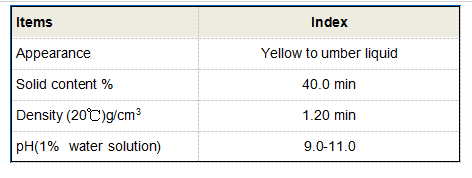Sodium Salt Formulation of Polyaspartic Acid for Enhanced Performance in Various Applications
The Versatility and Benefits of Polyaspartic Acid Sodium Salt
Polyaspartic acid sodium salt, a derivative of aspartic acid, is gaining recognition for its remarkable properties and diverse applications across various industries. As a type of polycarboxylic acid, its anionic structure imparts unique characteristics that make it valuable in fields such as agriculture, pharmaceuticals, cosmetic formulations, and construction.
Properties of Polyaspartic Acid Sodium Salt
The unique properties of polyaspartic acid sodium salt stem from its amino acid backbone. This compound is known for its excellent solubility in water, biodegradability, and non-toxic nature, making it an eco-friendly alternative to many conventional chemicals. Its high molecular weight contributes to its ability to form films and gels, resulting in effective applications in adhesion and encapsulation.
Polyaspartic acid sodium salt exhibits a strong affinity for metal ions, which enhances its utility in chelation processes. This chelating ability not only helps in removing heavy metals from water but also plays a significant role in various industrial applications, such as metal surface treatment and wastewater management.
Agricultural Applications
In agriculture, polyaspartic acid sodium salt serves as a polymeric additive that enhances the effectiveness of fertilizers and pesticides. By forming protective coatings, it can control the release of nutrients and active ingredients, ensuring a consistent supply to plants while minimizing environmental impact. This slow-release characteristic not only reduces the frequency of applications but also lowers the chances of nutrient runoff, thus promoting sustainable farming practices.
Additionally, polyaspartic acid sodium salt can improve soil structure, enhancing water retention and nutrient availability. This property can be particularly beneficial in arid regions where soil degradation is a major concern. By incorporating polyaspartic acid sodium salt into soil amendments, farmers can promote healthier crop growth while conserving water resources.
polyaspartic acid sodium salt

Pharmaceutical and Cosmetic Uses
Polyaspartic acid sodium salt is also making waves in the pharmaceutical and cosmetic industries. Its biocompatibility and biodegradability make it an ideal candidate for drug delivery systems. By using polyaspartic acid sodium salt, pharmaceuticals can be encapsulated effectively, ensuring a targeted release of active ingredients. This targeted approach minimizes side effects and enhances therapeutic efficacy, making treatments more effective for patients.
In the cosmetics sector, polyaspartic acid sodium salt is utilized for its water-binding properties. It can be found in skincare products, where it functions as a humectant, drawing moisture into the skin and helping to maintain hydration levels. Furthermore, its film-forming ability provides a protective barrier, making it a valuable ingredient in lotions, creams, and serums aimed at improving skin texture and appearance.
Construction Industry Applications
Another area where polyaspartic acid sodium salt shines is in the construction industry. As part of polyaspartic coatings and sealants, it provides superior durability and chemical resistance compared to traditional epoxies. These coatings not only enhance the lifespan of various structures but are also quick-drying and have low VOC (volatile organic compound) content, making them safer for both applicators and the environment.
Moreover, the versatility of polyaspartic acid sodium salt allows it to be used in systems designed for high-performance flooring and concrete applications, thereby contributing to more resilient infrastructures.
Conclusion
In summary, polyaspartic acid sodium salt is a multifunctional compound with a broad range of applications. Its unique properties offer solutions in agriculture, pharmaceuticals, cosmetics, and construction, making it a valuable addition to various formulations and processes. As industries increasingly prioritize sustainability and efficacy, the importance of polyaspartic acid sodium salt is set to rise, paving the way for innovative approaches to modern challenges. Its potential to enhance product performance while being environmentally friendly places it at the forefront of the next generation of chemical additives.
-
Understanding Acrylic Homopolymers and Their ApplicationsNewsApr.01,2025
-
The Emerging Importance of Polyaspartic AcidNewsApr.01,2025
-
Poly Aluminum Chloride and Polyacrylamide: Key Players in Water TreatmentNewsApr.01,2025
-
Flocculants for Water TreatmentNewsApr.01,2025
-
Essential Solutions for Water Treatment and PurificationNewsApr.01,2025
-
Chemical Solutions for Advanced IndustriesNewsApr.01,2025





